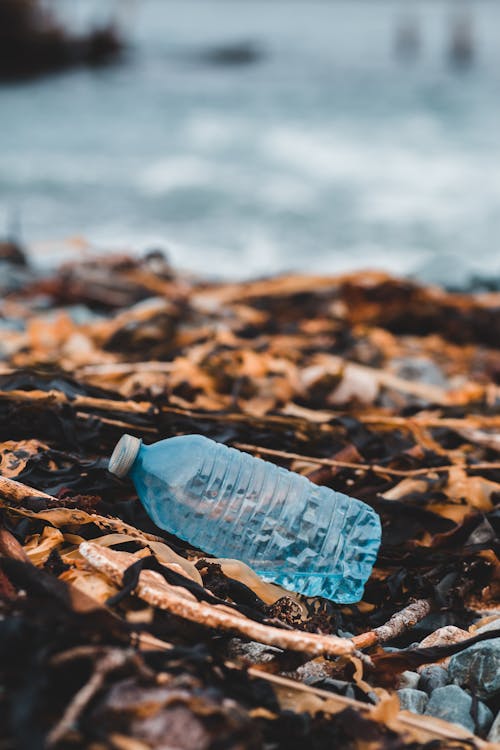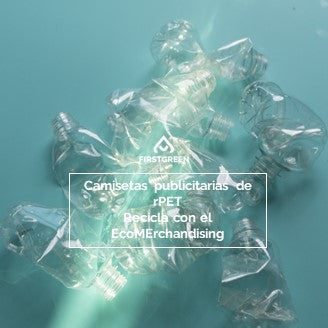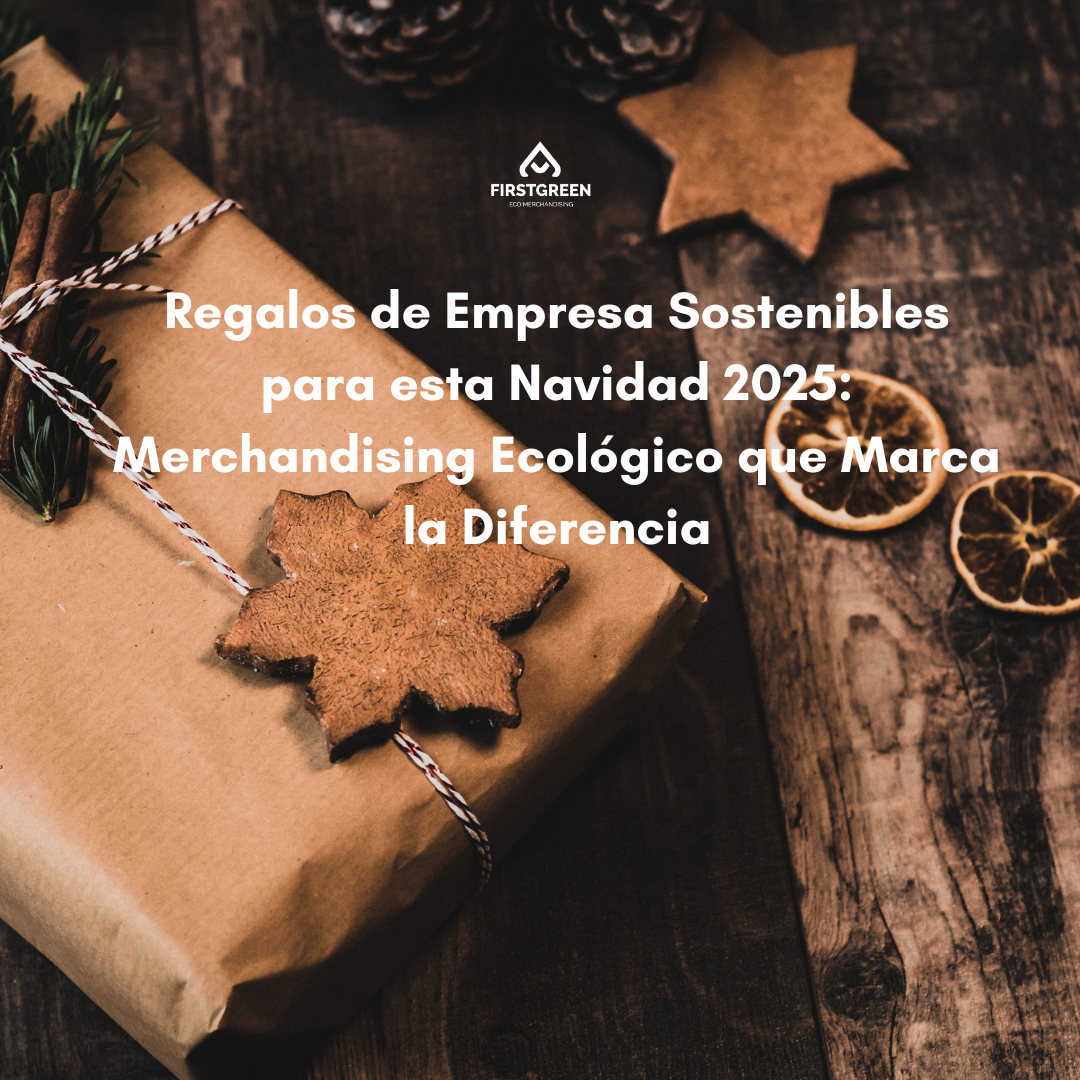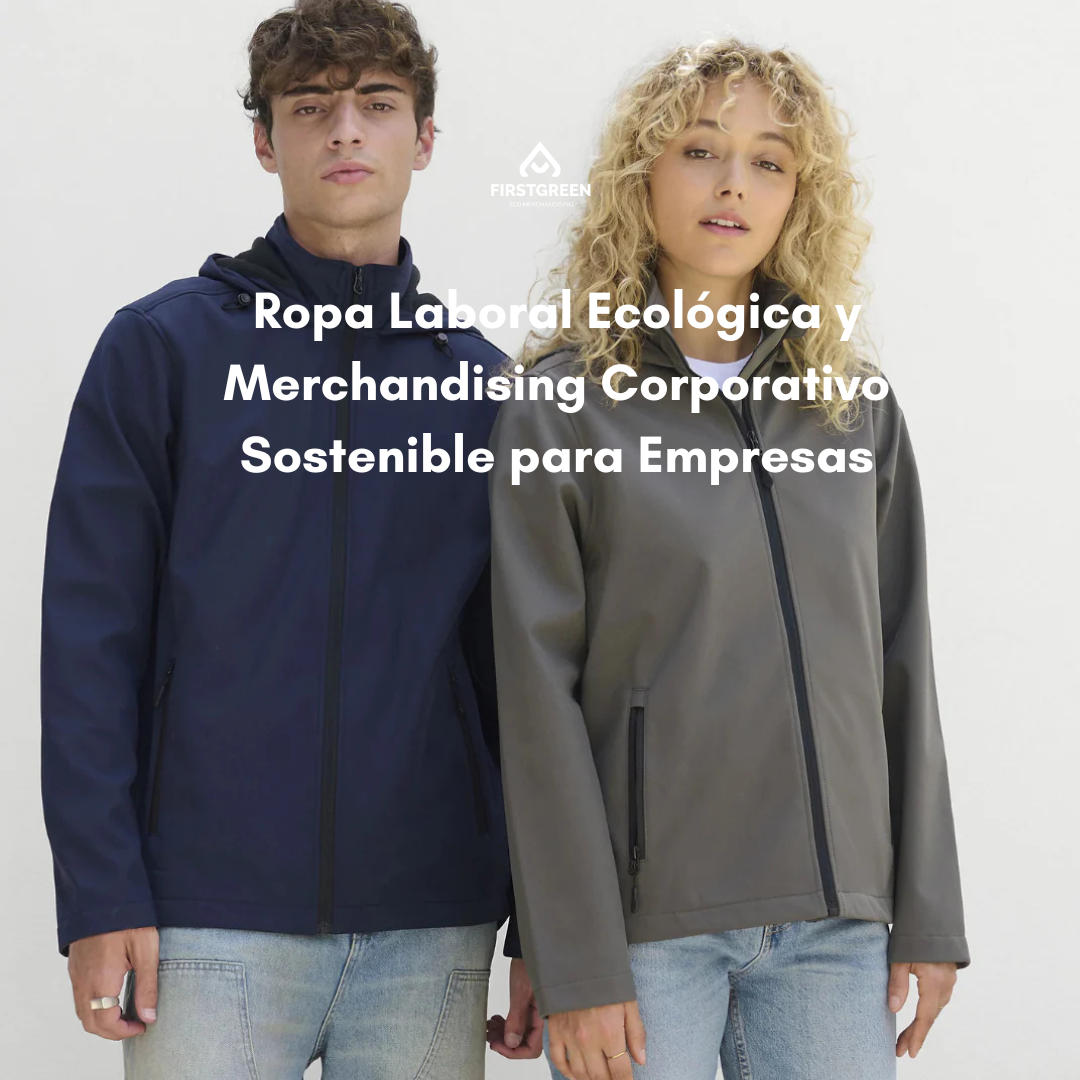We can say that there is a lot of damage that man causes to the environment and that global warming has been accelerated by human intervention, but it is also true that we have the power to reduce the damage by giving prominence to the circular economy.

Reduce, recycle and reuse are basic principles to delay the rise in temperatures, floods, thaws, droughts, etc., so today I am talking to you about PET or commonly called plastic, and its waste converted into a resource: rPET or recycled polyester , a material that has a lot of presence in ecological eco-merchandising and personalized corporate gifts, used as raw material for personalized rPET t-shirts , and its properties.
Why is PET so widely used in eco-friendly corporate gifts?
The planet is oversaturated with PET waste (packaging and clothing), but it is also the most used material in our daily lives. Its transformation from waste to resource is in our hands. Recycling this plastic is vital for the planet.
Recycled polyester is a fabric that maintains the same characteristics as virgin polyester, and that contributes to a lower environmental impact by eliminating petroleum from the manufacturing process. Both are highly valued especially for their durability during washing and use.
Sustainable t-shirts to personalize made of rpet, a good alternative for cheap and economical advertising
The low price of personalised technical t-shirts made of recycled PET is very suitable for the purpose for which they are used in the sector of cheap promotional gifts . Sporting and commemorative events in which participation is an important achievement and satisfaction, or because this fabric is durable and comfortable to use and the personalisation of brands and colours is resistant to time and washing.
Personalized items with a fabric whose characteristics make them very comfortable to use frequently.
Light and soft to the touch,
Waterproof, it absorbs less moisture and wicks away sweat more easily than other fabrics. Perfect for sports, as it traps sweat, in warm climates they may therefore be less suitable than in cold climates where they retain heat better.
Recycled polyester is the most commonly used material to combat the effects of humidity, in raincoats, raincoats, and rainwear.
Being a synthetic fiber, in some cases it can cause irritation on very sensitive skin, but this effect is greatly reduced when combined with cotton.
Elastic : It is a fabric that stretches naturally, ensuring the comfort of the garment, it does not shrink or lose its shape even after a lot of use.

Polyester Care Tips
Ease of use and care is a feature that cannot be overlooked in this fabric,
It is a much more durable fabric than cotton, and as it is less absorbent it is difficult to stain.
This material resists wrinkles, shrinking and even fading . It is easy to wash and disinfect, does not require ironing and dries quickly.
Additionally, it is recommended to machine wash in warm water and tumble dry at low temperature.
T-shirts for uniforms made of recycled polyester combined with cotton
Over time, fabrics combined from two or more materials have been developed to meet the needs of consumers, creating new fabrics with their own characteristics, increasing durability, texture, and production cost.
Cotton-polyester meets the needs of a lot of products, combining the resistance to wrinkles and shrinkage of 100% polyester with the properties provided by cotton, improving the antibacterial properties of the garment and keeping clothes fresh for longer.
The fabric obtained is of a higher quality, and therefore falls within a premium ecological merchandising , which can be used for brand advertising and VIP client loyalty, or as uniforms for training centers and companies that facilitate the work of your staff, taking into account the environment in which they work and the use required without leaving aside the good image.
This is why this combination is used specifically in sustainable health work clothing , in addition to being a higher quality fabric, a corporate business gift in which the Got ecological quality seal certifies its sustainable origin.

Differences between virgin and recycled polyester
Virgin polyester (PET) is a synthetic fibre obtained from a chemical reaction between petroleum, air and water. It is one of the most unsustainable and polluting materials on the planet because it comes from a non-renewable and highly polluting source such as petroleum. In addition, it is not biodegradable and takes more than 200 years to decompose.
However, PET has become a resource, the raw material needed to obtain recycled polyester (RPET), through recycling and upcycling any type of waste from plastic.
On a practical level, there is no difference between traditional and recycled polyester, since during the recycling process the fibre is reconstituted at a molecular level and the result is a recycled polyester that is just as strong, durable and has the same properties. However, the environmental impact of recycled rPET is much lower.
I'll list a few for you.
1.- The raw material for recycled polyester comes from the reuse of existing materials (plastic bottles or polyester fabrics) which are given a second life and prevented from ending up in landfills, thus also reducing the amount of plastic that is incinerated, releasing toxic gases into the air.
2.-During the transformation process, recycled polyester saves energy in all its production processes by 50% compared to the production of virgin polyester and reduces CO2 emissions into the environment by 25%, which are the main causes of the greenhouse effect and climate change.
3.- It does not require new oil as a raw material for its manufacture, which reduces the demand and extraction of this fossil fuel, decreasing dependence on oil and reducing the environmental footprint.
In addition, this type of fabric allows for a very sustainable priming with a high-quality and highly resistant finish. Textile sublimation is used to print on recycled PET, in which running water is not used during the process. The inks are water-based and the waste generated (paper) is recycled.
Recycled PET is a good example of a material adapted to the circular economy, in which the use of a second life without further harming the planet is possible.



